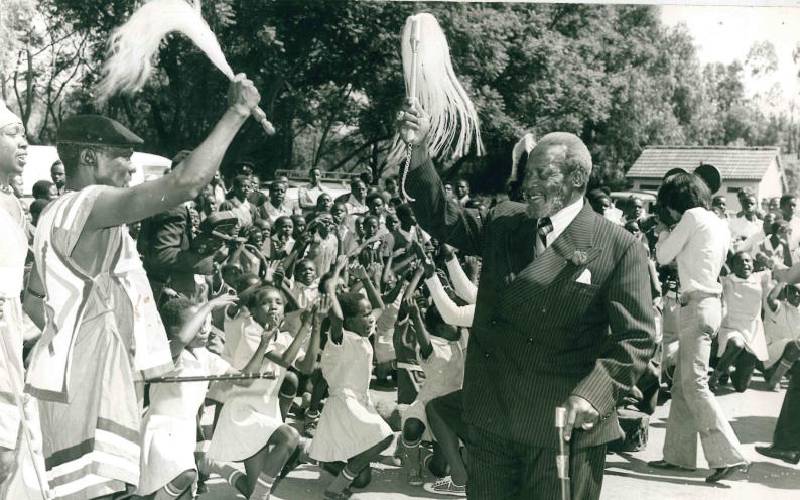×
The Standard e-Paper
Join Thousands Daily

Mzee Jomo Kenyatta acknowledges cheers from groups of traditional dancers and school choirs at Statehouse, Nakuru. [File, Standard]
Mashujaa Day, 2021, will go down in history as the day Kenyans were finally released from the constraints of the nationwide dusk to dawn curfew, which they had to adhere to for well over a year.







